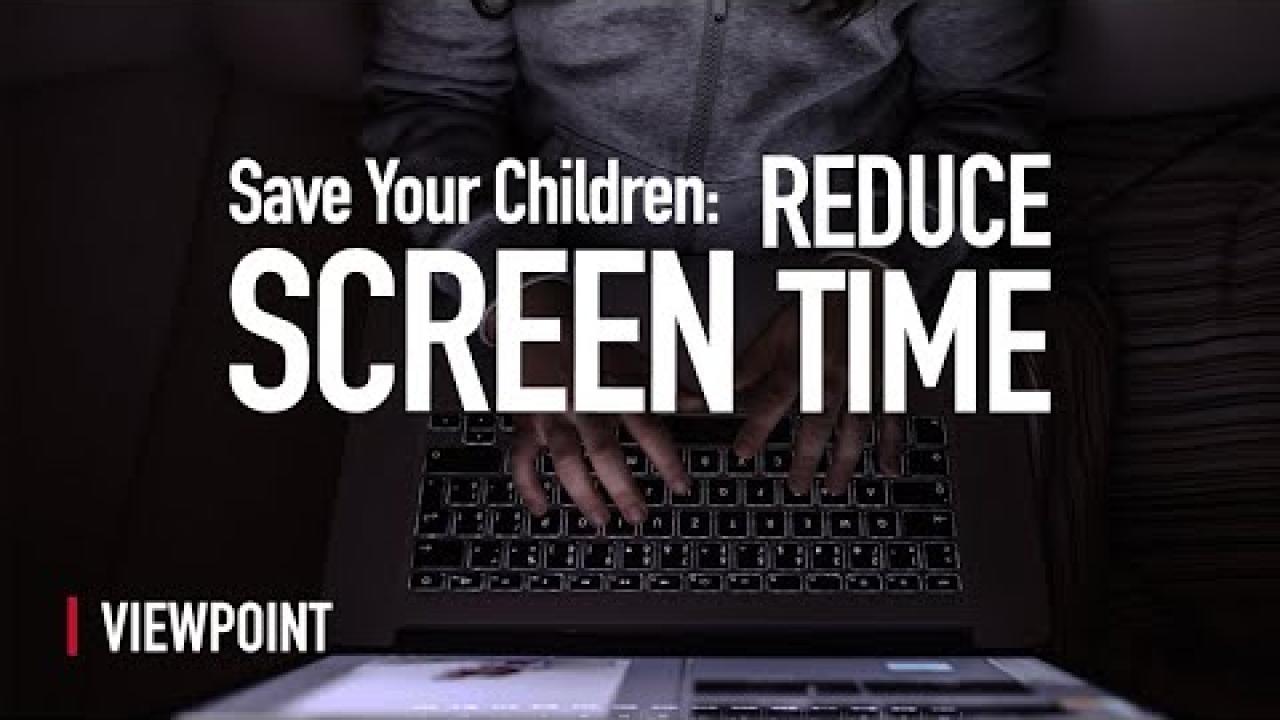
Save Your Children: Reduce Screen Time!
With more and more people opting to work and learn from home, the already prevalent trend towards increased exposure to electronic devices has accelerated dramatically, especially among the young. Parents and educators need to seriously consider the potential ramifications this may have on the well-being of our children.
Electronic screens have become a constant in modern life. They exist in cars, planes, living rooms, offices, and are also present in the hands of most people in the form of smart phones or tablets. While often used for work, many are utilized primarily for entertainment, communication and the near constant accessing of social media. It appears that young adults, youths and children are being consumed by them. Is this a good thing?
In few places are electronic screens employed more than in the nation's schools. From as early as kindergarten and grade 1, children are expected to use computers or touch screens as learning aids. School systems frequently boast about how they promote all manner of electronic and online learning supports, and no longer use the archaic print materials.
Yet in the midst of this nearly euphoric rush to replace print and traditional learning with electronics, there are disturbing scientific findings that seem to be willfully ignored by many parents and school systems.
A report published by the American Medical Association in 2019, stated:
"…no improvements have been seen in student academic performance over the past decade." ("Association Between Screen Time and Children's Performance on a Developmental Screening Test , " March 2019 ).
Despite a prodigious investment in technology for education there are no actual quantifiable improvements in educational results.
Then we come to the warnings from the medical field, which are growing louder with every passing year. The same report suggests that parents should be limiting the amount of time a child spends in front of a screen, especially at very young ages.
"… higher levels of screen time at 24 and 36 months were significantly associated with poorer performance on developmental screening tests at 36 months … " (ibid)
From a very young age there are indications of negative results on the brain from the overuse of screens, yet these are not well understood or solidly confirmed. The medical concern relates to the fact that screen time is increasing among younger children and further increases during adolescence, while at the same time the developing brain is being shaped and prepared for adulthood. Damage during this period can be serious. There are suspicions of negative impact of heavy screen time in the formative years, such as reduced attention span, lower performance on assessments, and even premature thinning of the cerebral cortex. The US National Institutes of Health are so concerned that they have earmarked $300 million for a study that, among other things, will include the impact of screen time on the developing brain (Benedict Carey, "Is Screen Time Bad for Kids' Brains?," The New York Times , December 10, 2018).
One wonders why, with all of this concern, are school systems, without empirical research, rushing headlong to spend at least a third of their budgets on an approach that has failed to improve education, and could inflict harm on students?
Certain peer-reviewed studies were reported on by the Shorenstein Center, a Harvard University research center which found the following:
Increased screen time at young ages predicts:
- an increase in behavioral problems.
- diminished attention spans.
- potential delay in language development.
- decline in academic performance.
- noted deterioration in user health (mental and physical) due to sedentary effect of screen time.
- increases in sleep disorders and tendency toward obesity, along with delays in muscular coordination.
- tendency toward development of insulin resistance (precursor to Type 2 Diabetes).
(The health effects of screen time on children: A research roundup, Chloe Reichel - journalistsresource.org )
Perhaps it is time we rethink where we are going as a society, and if we want our activities, our decisions as to how we learn, and what we see and think determined by an imperative to spend more and more time in front of an electronic screen. We are missing so much in what can be a beautiful world, full of interesting and inspiring aspects of nature. The joy of being outside, of throwing or catching a ball, are all being stolen from a generation growing up with a two-dimensional world view, and a reduced conception of reality.
Help your children or grandchildren develop by enabling them to experience life in a world of three dimensions, with all of the mental and physical health benefits it offers.